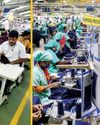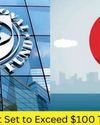Autumn marks the changeover from summer to winter and the temperature drops considerably, making the Indian climate pleasant. Unfortunately the autumn of 2018 did not bring any pleasant moments in the life of Infrastructure Leasing and Financial Services (IL&FS), an Indian infrastructure development and finance company. And even after six months, the situation remains an unanswered paradox.

Autumn 2018 was a brainstorming time for money market experts in India. They sat together in boardrooms to decide the destiny of distressed financier IL&FS and the revival planning began. The challenge was as threatening as the Lehman Brothers crisis when the US Treasury stepped in to rescue America’s mortgage lending market in the autumn of 2008.
Although the government did not assure any bailout measure, it replaced the management of IL&FS with a new board in October 2018 and The Mumbai bench of National Company Law Tribunal (NCLT) upheld government’s decision to banish the existing board and to appoint the managing director of Kotak Mahindra Bank, Uday Kotak as the non-executive chairman of the troubled infrastructure development and finance company.
IL&FS has an aggregate debt pile of around 94,300 crore; out of which the company owes approximately 57,000 crore to banks only, most of which are public sector banks. On the other hand, out of the 18,800 crore loans advanced by IL&FS, 90% have become non-performing asset and the management was successful in recovering only 10% of the doubtful exposure. Now, even six months later, the IL&FS dispute remains an unresolved puzzle and due to an unhealthy match of assetliability, the consolidated debt-equity ratio has become 10:1. Notwithstanding IL&FS reporting a loss of 1,887 crore in FY18 from a profit of 142 crore in FY17, the salary of then chairman Ravi Parthasarathy was raised from 10.8 crore to 20.5 crore, boosting him to the 47th rank on Fortune India’s list of 50 highest paid executives. This highlights the deep incompetence of the previous management.
Dry days for banks
この記事は BUSINESS ECONOMICS の May 1-15, 2019 版に掲載されています。
7 日間の Magzter GOLD 無料トライアルを開始して、何千もの厳選されたプレミアム ストーリー、9,000 以上の雑誌や新聞にアクセスしてください。
すでに購読者です ? サインイン
この記事は BUSINESS ECONOMICS の May 1-15, 2019 版に掲載されています。
7 日間の Magzter GOLD 無料トライアルを開始して、何千もの厳選されたプレミアム ストーリー、9,000 以上の雑誌や新聞にアクセスしてください。
すでに購読者です? サインイン

Bank of Baroda, Kolkata Zone organised Mega Kisan Melas in West Bengal
Bank of Baroda (BOB) organised Mega Kisan Mela at Konkalitala in Birbhum District of West Bengal on November 18, 2024 as a part of the 7th Edition of the Baroda Kisan Pakhwada (BKP).

Time-Bound Disposal of Cases to Expedite the Delivery of Justice and affordabe by all in India
The delay in the disposal of cases in Indian courts remains a significant hurdle to the nation's progress.

Dev Deepawali: A grand celebration of light, spirituality, and culture in Varanasi
The holy city of Varanasi, often regarded as India's spiritual and cultural heart, came alive with the splendor of Dev Deepawali on the sacred day of Kartik Purnima.

The life of Job 'Ye judge not the judgment of God' - Jesus Christ
The Holy Bible reveals through the life of Job how the Lord tests the righteous and that faith helps one to overcome life's adversities.

India has the highest potential for the garment industry, only a conducive government policy is required.
India's textile industry is poised for remarkable growth, with expectations to double its contribution to the GDP within the next six to seven years.

Global Public Debt may be worse than it appears, warns IMF
Global Public Debt Set to Exceed $100 Trillion, Warns IMF

The economic consequences of Trump's Presidency: A global perspective
One of the key economic factors contributing to the Democrats' loss in the US elections was the significant rise in inflation, which was initially triggered by the COVID-19 pandemic and exacerbated by the Russia-Ukraine war.

Challenges and Successes in West Bengal's Education Sector: A Comprehensive Overview
The education system in West Bengal, particularly in districts, villages, slums, and government institutions, reflects a blend of progress and ongoing challenges.

What India can expect from Trump's return
I may be too early to predict how Donald Trump's second term as president will impact the global oil market.

Stocks Surge Following Donald Trump's Election as 47th President of the USA
Stocks soared following the election of Donald Trump as the 47th President of the United States. Investors anticipated that the Information Technology (IT) sector would benefit from lower corporate taxes under the Republican regime, with IT stocks leading the rally.